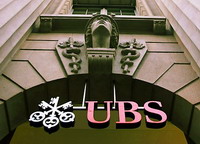World economy can survive consequences of US housing crisis
The fallout from the U.S. housing crisis can be easily sustained by the world economy without cutting borrowing costs.

The United States has already lowered its benchmark rate twice because of worries about a slowdown, while the Bank of England made a quarter-point cut Thursday. The ECB held steady.
Economic growth in the OECD's 30 members - which include the U.S., Britain, Germany and France - will slow to 2.3 percent next year from 2.7 percent in 2007, the Paris-based think tank predicted in its twice-yearly forecast. In May, the OECD saw growth rates next year equaling 2007.
"Although near-term growth has been revised down virtually everywhere," the outlook "is actually not that bad in view of the recent shocks," said Jorgen Elmeskov, the OECD's acting economics chief.
Corporate profits, high employment and increased global trade have supported the global economy, while it has been buffeted by tighter credit conditions, slowing housing markets and rising energy and commodities prices, the OECD said.
Elmeskov expressed concern that higher energy, raw materials and food prices will boost inflation expectations. To avoid a spiral effect of higher wage demands, further spurring inflation, the OECD "might be prepared to pay a price in terms of lower activity in the short term," he said.
The United States should avoid recession, the OECD said, predicting an expansion of 2 percent next year after 2.2 percent in 2007.
"This does not, however, necessarily warrant a further easing of monetary policy unless the recession risks intensify," the OECD said.
Investors are on the lookout for signs that the Federal Reserve will reduce rates again from the current 4.5 percent level when policy makers meet on Tuesday. The central bank could take a cue from the Bank of England, which cut its key interest rate to 5.5 percent from 5.75 percent on Thursday.
The ECB should also hold its fire, the OECD said, urging policy-makers to show "vigilance" both about inflation risks and weaker growth, meaning the ECB should neither raise nor lower borrowing costs for the time being.
"We will continue to pay great attention to developments over the coming weeks," ECB President Jean-Claude Trichet pledged, adding that the bank would "do all what will be necessary" to ensure there are no knock-on effect of inflation.
In the 13-nation euro region, economic growth is forecast to slow to 1.9 percent in 2008 from 2.6 percent this year, the OECD said. A sharp rise in energy and food prices has boosted inflation above the ECB's 2 percent limit, "but is expected to decelerate," falling to 1.9 percent next year, the OECD said.
The Bank of Japan was also advised to leave its interest rates unchanged even as growth slows to 1.6 percent in 2008 from 1.9 percent, according to the OECD forecasts.
China, not an OECD member, risks an overheating of its economy, the organization said, urging the government to allow the yuan to appreciate more rapidly.
"Our fears are more about growth than inflation" both in the United States and the euro zone, said Alexandre Bourgeois, an economist at Natixis in Paris.
Subscribe to Pravda.Ru Telegram channel, Facebook, RSS!


